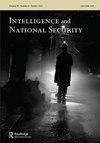Opportunities and Challenges in India's International Trade
IF 0.8
3区 社会学
Q1 HISTORY
引用次数: 0
Abstract
The momentum generated by a significant rise in India’s exports in 2021-22 needs to be sustained despite the prevailing geopolitical and geoeconomic tensions. Indian industry also needs to come forward and fully avail of the recent initiatives launched by the government to build a strong and competitive export capacity and address the high level of trade deficit that India currently faces. It will also strengthen the economic security of the nation. For this goal to be realised, however, it is important to secure a conducive international trading framework. India is actively engaged in this task--both multilaterally on WTO reforms and bilaterally with friendly trade partners for concluding Free Trade Agreements (FTAs). Further, India is discussing with its leading trade partner, the United States, several unsettled trade issues. Negotiations are also underway on the different pillars of the Indo-Pacific Economic Framework (IPEF). All these are intricate issues and in some ways interrelated. Some of them may also come up in the G-20 under India’s chairmanship. If successfully handled, all of them could also help buttress India’s export effort印度国际贸易的机遇与挑战
尽管地缘政治和地缘经济紧张局势普遍存在,但印度2021- 2022年出口大幅增长所带来的势头需要保持下去。印度工业也需要挺身而出,充分利用政府最近推出的举措,以建立强大而有竞争力的出口能力,并解决印度目前面临的高额贸易逆差。它还将加强国家的经济安全。然而,要实现这一目标,重要的是要确保有利的国际贸易框架。印度正积极参与这一任务——无论是多边的世贸组织改革,还是与友好贸易伙伴签订自由贸易协定的双边合作。此外,印度正在与其主要贸易伙伴美国讨论几个尚未解决的贸易问题。关于印太经济框架(IPEF)不同支柱的谈判也在进行中。所有这些都是错综复杂的问题,在某种程度上是相互关联的。其中一些问题也可能在印度担任主席国的20国集团会议上出现。如果处理得当,所有这些问题都可能有助于支持印度的出口努力
本文章由计算机程序翻译,如有差异,请以英文原文为准。
求助全文
约1分钟内获得全文
求助全文
来源期刊

Intelligence and National Security
Multiple-
CiteScore
1.80
自引率
41.70%
发文量
93
期刊介绍:
Intelligence has never played a more prominent role in international politics than it does now in the early years of the twenty-first century. National intelligence services are larger than ever, and they are more transparent in their activities in the policy making of democratic nations. Intelligence and National Security is widely regarded as the world''s leading scholarly journal focused on the role of intelligence and secretive agencies in international relations. It examines this aspect of national security from a variety of perspectives and academic disciplines, with insightful articles research and written by leading experts based around the globe. Among the topics covered in the journal are: • the historical development of intelligence agencies • representations of intelligence in popular culture • public understandings and expectations related to intelligence • intelligence and ethics • intelligence collection and analysis • covert action and counterintelligence • privacy and intelligence accountability • the outsourcing of intelligence operations • the role of politics in intelligence activities • international intelligence cooperation and burden-sharing • the relationships among intelligence agencies, military organizations, and civilian policy departments. Authors for Intelligence and National Security come from a range of disciplines, including international affairs, history, sociology, political science, law, anthropology, philosophy, medicine, statistics, psychology, bio-sciences, and mathematics. These perspectives are regularly augmented by research submitted from current and former intelligence practitioners in several different nations. Each issue features a rich menu of articles about the uses (and occasional misuses) of intelligence, supplemented from time to time with special forums on current intelligence issues and interviews with leading intelligence officials.
 求助内容:
求助内容: 应助结果提醒方式:
应助结果提醒方式:


